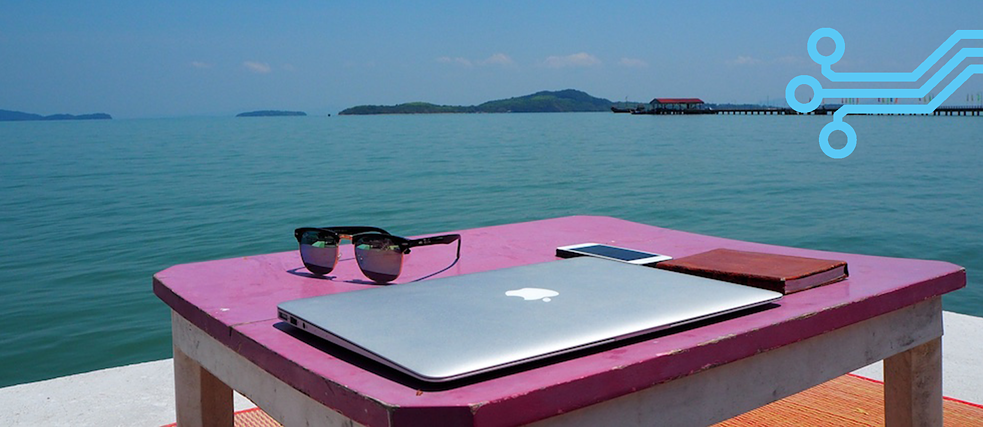Life as a digital nomad
When the world is the better office

Working on a train in India, video conferencing on Skype from a beach in Thailand, enjoying an after-work apéritif in a new city every week – digital nomads make the most of the new technologies to see the world, earning their daily bread as they go.
By Aroa Fernández
A laptop and a good internet connection are all that Olga, Andrés and Elisa need to work. Like their fellow digital nomads, they have seized the opportunity afforded by the new technologies to work whilst travelling from one country to the next. Olga has been to 50 countries so far, Andrés 30 and Elisa 24 (not counting brief stopovers). They are keen vagabonds who at some point realized that the Net makes it possible to earn money from just about any place in the world.
A lot of effort and planning
One of her last trips took her to Spain for another project: Latinas Who Travel, a pool of globetrotters from Latin American countries, for whom she organized an almost one-month trip across Spain and Morocco. Olga will soon be heading over to India to join sixty other bloggers crisscrossing the country by train. You may think Olga's nomadic life is a stroke of good fortune, but the truth is it involves plenty of effort and, above all, planning, she says. "You have to think carefully about where your talents lie and whether you can make money on that. Whether as a graphic designer, editor, social media manager, business consultant – whatever it is, you need to know exactly what you have to offer."Time management made to measure – and to travel
It wasn’t hard for Elisa Orellana to figure that one out. She’s a translator. Four years ago she quit her salaried job to strike out on her own. As a roaming freelance, she got to manage her time as she saw fit and indulge her great passion: travelling.During a stay in the USA she met her partner, and three years ago they decided to become digital nomads together. They’ve got around since then: "Thailand, Malaysia, Cambodia, Indonesia, Singapore, Germany, Poland, France, Great Britain, Ireland, Turkey, Israel, Denmark, Croatia..." In some of these countries they spent only a few weeks, in others up to three months – the maximum validity of a tourist visa in most countries.
"When we first met, my boyfriend was an artiste in the circus, we travelled around according to his professional engagements. But since he changed occupations we've been traveling around the world in a different way, taking more care of ourselves. That's why we sometimes stay longer in one country or another," she explains, adding that it’s also good for her translation business to actually meet some of her customers.
No home and far from friends
Being a digital nomad has given Elisa a sense of being in the world, broadened her horizons and brought her into contact with plenty of interesting people. She has also learned to live with less stuff and to be more tolerant and stress-resistant. So it’s been an invaluable learning experience, but she admits there’s a downside: "The hardest part for me was not having a home of my own." What’s more, she adds, you’re never near the relatives and friends you like, and then there’s the language barrier, which can be frustrating.It was wanderlust that led Andrés Navarro to become a digital nomad too. A born Sevillian who studied film and video production, Andrés has always wanted to live abroad. Four years ago, after jobs in Seville and Mallorca, he announced to his mother that he was going to the Philippines. After a year there he moved to Ireland, then Germany. Whilst doing odd jobs in each country, he gradually developed his own project: an online magazine called Me voy al Mundo, which has since become an important portal for Spaniards interested in living and working abroad. Andrés is exclusively focused on this project, through which he earns a living as a digital nomad.
He may be returning to Madrid soon to continue his technical training in media production. However, he adds, “This is a plan for the future, things could change completely overnight."
Comments
Comment